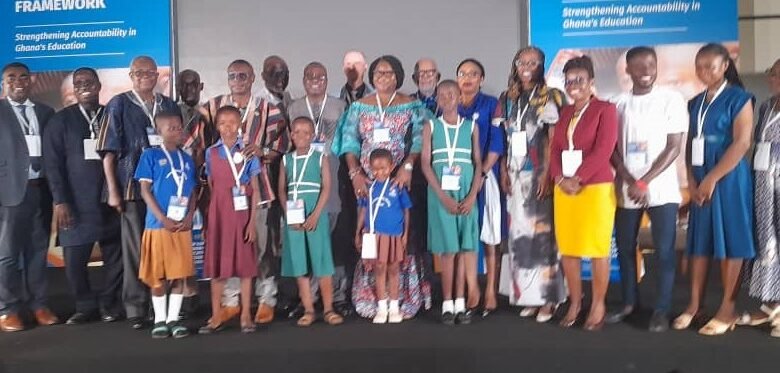Stakeholders discuss accountability in education

A forum on the country’s Education Accountability Framework (EAF) has been held in Accra.
The EAF is aimed at finding ways of strengthening the operations of the framework.
Forming part of the education strategic plan for 2018-2030, the EAF is systemic response to the poor performance of the education sector as a whole.
It is a blueprint which clearly defines roles and responsibility of all stakeholders in the education sector as well as inform their actions at every level in the education.
Organised by the Ministry of Education in collaboration with USAID’s Strengthening Accountability in Ghana’s Education System (SAGES), the forum brought together experts, policymakers, and stakeholders to discuss critical issues surrounding educational accountability in the country.
Opening the forum in Accra yesterday, the Director-in-charge of Research at the Ministry of Education, Mr Ben Nick Barnor who represented the Minister of Education, Dr Yaw Osei Adutwum, said the effective operationalisation of the EAF remained the surest way of delivering quality education in the country.
He said the EAF was designed to ensure that all system elements functioned as planned while ensuring that all stakeholders fulfilled their roles, and performance transparently measured.
Mr Barnor said the education strategic plan for 2018-2030, identified a lack of accountability as one of the primary causes of poor learning outcomes in primary schools.
To this end he said all stakeholders within the education ecosystem must ensure that the EAF was operationalised effectively to ensure education accountability across all levels of the spectrum.
He explained that the EAF was just the first step, however, the real challenge was with the effective operationalisation of the framework which dearly defined the roles, responsibilities and expectations of key players in the education sector.
The key players he noted, included policy makers, education managers at every level from the school to the Ministry, teachers, and parents who were tasked with ensuring quality teaching and learning throughout the system.
Furthermore, he said it provided an overarching set of principles that guided the design, harmonisation and operation of accountability measures, data collection, analysis and dissemination systems, and accountability data-driven school improvement measures
The Education Office Director at USAID/Ghana, Ms Rasheena Reid, said institutionalising accountability demanded a multi-pronged approach that aligned processes like school inspections, national assessments, data systems, and evidence-based decision making with the ultimate goal of improving learning outcomes.
This, she said required coordination across ministries, districts, and schools and necessitated empowering communities as active partners.
“While Ghana has made commendable strides in the education sector, challenges remain. These challenges include ensuring effective teacher training and deployment, addressing gaps in data collection and use, promoting equitable access and opportunities for all learners, including girls in marginalised groups, and entrenching a culture of accountability and continuous improvement,” she emphasised.
Touching on the forum, she said it represented an important opportunity for open and substantive dialogue on critical issues, and by tapping into the experts assembled at the forum, actual solutions could be identified to accelerate progress in education accountability in Ghana.
The panel explored challenges, opportunities, and strategies to strengthen accountability mechanisms in the country’s education system, with the goal of improving learning outcomes for Ghanaian children.
BY CLIFF EKUFUL

